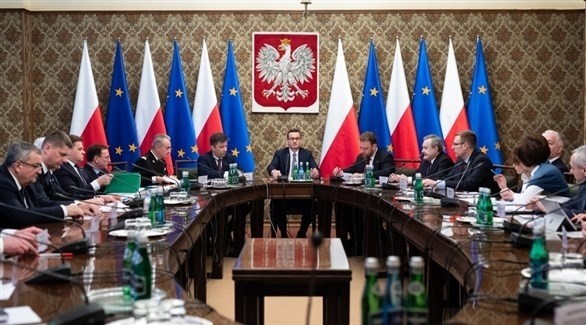Nearly 40 lawmakers defied Jaroslaw Kaczynski, the leader of the governing Law and Justice party (PiS), and voted against a bill that would liquidate farms which breed animals for fur, and would introduce a broad range of provisions to improve animal welfare. Another 15 lawmakers abstained.
The legislation is important to Kaczynski, a known cat lover, who also wants to open his socially conservative party to younger voters.
However, factions within the party criticized the bill, citing the economic impact on farmers, where PiS has a strong following.
Eventually the bill was adopted by the lower house thanks to the support of opposition lawmakers.
Following the vote, the governing majority "practically does not exist" anymore, the lower house deputy speaker, Ryszard Terlecki of PiS, said on Friday.
"Of course it's not a done deal, various things are possible in politics and a lot can happen," Terlecki said.
The PiS leadership will convene on Monday to discuss the next steps, he said. Poland "faces a prospect of a minority government, and if this makes it impossible to govern..., then a snap election will be necessary," Terlecki said as cited by PAP agency.
In case of a snap election, the rebel factions would not be included on PiS electoral lists, he said.
The governing majority has been embroiled in an internal power struggle in recent weeks over a prospective cabinet reshuffle.
This infighting provoked factions within the party to openly criticize Kaczynski and his political protege, Prime Minister Mateusz Morawiecki.
This criticism came primarily from United Poland (Solidarna Polska), a PiS satellite party, which appeals to more conservative voters.
A number of recent initiatives - including a plan to withdraw from the Istanbul Convention on violence against women and anti-LGBT rhetoric - can be attributed to United Poland politicians.
All United Poland lawmakers, including Justice Minister Zbigniew Ziobro, voted against PiS in the Friday vote.
The decision to defy PiS will likely be reflected in the composition of the government, according to Terlecki.
At the same time, political commentators as well as some opposition politicians believe that the threat of a snap election is a tactical ploy to exert pressure on the factions, whose politicians would have little chance of entering parliament in the next election if they were excluded from PiS electoral lists.
The legislation is important to Kaczynski, a known cat lover, who also wants to open his socially conservative party to younger voters.
However, factions within the party criticized the bill, citing the economic impact on farmers, where PiS has a strong following.
Eventually the bill was adopted by the lower house thanks to the support of opposition lawmakers.
Following the vote, the governing majority "practically does not exist" anymore, the lower house deputy speaker, Ryszard Terlecki of PiS, said on Friday.
"Of course it's not a done deal, various things are possible in politics and a lot can happen," Terlecki said.
The PiS leadership will convene on Monday to discuss the next steps, he said. Poland "faces a prospect of a minority government, and if this makes it impossible to govern..., then a snap election will be necessary," Terlecki said as cited by PAP agency.
In case of a snap election, the rebel factions would not be included on PiS electoral lists, he said.
The governing majority has been embroiled in an internal power struggle in recent weeks over a prospective cabinet reshuffle.
This infighting provoked factions within the party to openly criticize Kaczynski and his political protege, Prime Minister Mateusz Morawiecki.
This criticism came primarily from United Poland (Solidarna Polska), a PiS satellite party, which appeals to more conservative voters.
A number of recent initiatives - including a plan to withdraw from the Istanbul Convention on violence against women and anti-LGBT rhetoric - can be attributed to United Poland politicians.
All United Poland lawmakers, including Justice Minister Zbigniew Ziobro, voted against PiS in the Friday vote.
The decision to defy PiS will likely be reflected in the composition of the government, according to Terlecki.
At the same time, political commentators as well as some opposition politicians believe that the threat of a snap election is a tactical ploy to exert pressure on the factions, whose politicians would have little chance of entering parliament in the next election if they were excluded from PiS electoral lists.









 Home
Home Politics
Politics











